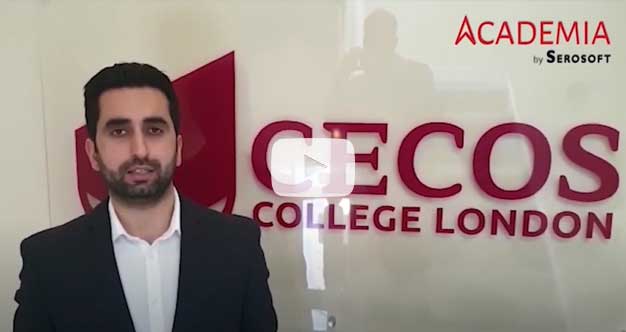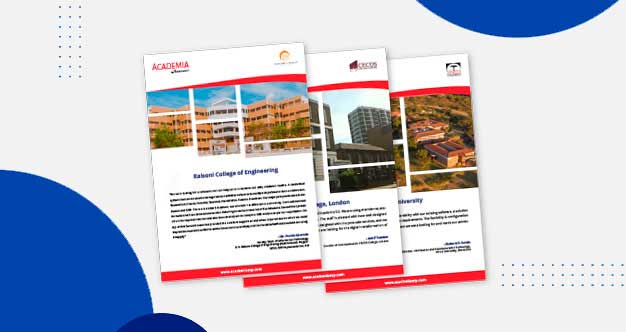Fostering Engineering Excellence: The Essential Role of the Engineering Council South Africa (ECSA)
The allure and intricacy of engineering lie in its capacity to surmount real-world predicaments, shape society, and propel innovation. However, without adept and skilled engineers, this potential remains untapped. In South Africa, Engineering Council South Africa (ECSA) assumes a pivotal role in guaranteeing the competence of engineers and regulating the engineering profession. From establishing unwavering standards to advocating for the profession, ECSA’s contributions have indelibly shaped the engineering landscape in South Africa.
This blog delves into the instrumental role of ECSA in ensuring the competence of engineers in South Africa and sheds light on the myriad benefits of ECSA accreditation for both engineers and engineering programs.
The Significance of Ensuring Engineering Competence
Engineering, as a complex and ever-evolving field, demands specialized knowledge, technical prowess, and creative thinking to navigate intricate challenges. The work of engineers often carries wide-ranging implications for society, encompassing the design of bridges and highways, the development of sustainable energy solutions, and the creation of innovative medical technologies. Hence, it is of paramount importance to ensure that engineers possess the requisite competence to execute their work with utmost safety, efficacy, and efficiency.
The assurance of engineering competence holds multifaceted significance. Firstly, it guarantees that engineering projects adhere to the highest standards of quality, safety, and efficiency throughout their design, implementation, and maintenance. This is indispensable in safeguarding the public, the environment, and the economy from the perils and costs associated with substandard engineering endeavors.
Secondly, ensuring the competence of engineers fosters innovation and propels the emergence of cutting-edge technologies. By nurturing a highly proficient engineering workforce, South Africa can forge ahead as a vanguard of technological advancements and pioneer innovative solutions to the challenges confronting the nation.
Lastly, upholding engineering competence cultivates public trust and confidence in the engineering profession. This is a critical aspect in attracting the most brilliant minds to the field and maintaining the profession’s reputation and standing as a vital catalyst for economic growth and societal development.
Read our case studies – False Bay College, Muizenberg, South Africa:
A Brief Overview of Engineering Council South Africa (ECSA)
Established in 2000 under the Engineering Profession Act (EPA), the Engineering Council of South Africa (ECSA) operates as a statutory body. ECSA’s responsibility lies in regulating the engineering profession in South Africa and ensuring that engineering professionals meet the requisite competence and ethical standards to practice in the country.
The core mandate of ECSA encompasses the registration of engineering professionals, accreditation of engineering programs offered by tertiary institutions in South Africa, the establishment of competency standards, development and administration of professional examinations, and advocacy for the interests of the engineering profession.
Through its regulatory endeavors, ECSA ensures that the engineering profession in South Africa operates in the best interest of the public, with engineering professionals upholding the highest standards of competence, ethics, and professionalism. ECSA has also played a pivotal role in promoting the engineering profession within South Africa by supporting initiatives aimed at encouraging more students to pursue engineering studies and raising awareness about the discipline’s significance to the country’s economy and development.
ECSA Registration Categories
Engineering Council South Africa (ECSA) offers a range of registration categories based on an individual’s education, training, and experience. The following registration categories are available:
- Candidate Engineering Technician (CAT): This category caters to individuals who have completed a National Diploma in Engineering or an equivalent qualification and are actively working toward fulfilling the practical training and experience requirements for registration as a Professional Engineering Technician (PrEngTech).
- Professional Engineering Technician (PrEngTech): This category is designated for individuals who have fulfilled the requirements of a National Diploma in Engineering or an equivalent qualification, along with the completion of the practical training and experience prerequisites. PrEngTechs possess the ability to work independently or as part of a team and are authorized to endorse certain engineering work.
- Candidate Engineer (CE): Individuals who have obtained a Bachelor’s degree in Engineering or an equivalent qualification and are progressing towards fulfilling the practical training and experience requirements for registration as a Professional Engineer (PrEng) fall under this category.
- Professional Engineer (PrEng): This category encompasses individuals who have attained a Bachelor’s degree in Engineering or an equivalent qualification and have met the practical training and experience requirements. PrEngs possess the competence to work independently or as part of a team and are authorized to endorse certain engineering work.
- Candidate Engineering Technologist (CET): Individuals who have successfully completed a National Diploma in Engineering Technology or an equivalent qualification and are in the process of fulfilling the practical training and experience requirements for registration as a Professional Engineering Technologist (PrEngTech) belong to this category.
- Professional Engineering Technologist (PrEngTech): This category caters to individuals who have fulfilled the requirements of a National Diploma in Engineering Technology or an equivalent qualification, in addition to the completion of the practical training and experience prerequisites. PrEngTechs possess the ability to work independently or as part of a team and are authorized to endorse certain engineering work.
- Candidate Professional Natural Scientist (CPNS): Individuals who have completed a Bachelor’s degree or a higher qualification in Natural Sciences or an equivalent field and are actively working toward fulfilling the practical training and experience requirements for registration as a Professional Natural Scientist (PrNatSci) fall into this category.
- Professional Natural Scientist (PrNatSci): This category encompasses individuals who have obtained a Bachelor’s degree or a higher qualification in Natural Sciences or an equivalent field and have met the practical training and experience requirements. PrNatScis possess the competence to work independently or as part of a team and are authorized to endorse certain natural science work.
It is important to note that each registration category has specific requirements pertaining to education, training, and experience, as well as distinct levels of responsibility and authority. The diagram below illustrates the hierarchical structure of ECSA registration categories, with higher-level categories necessitating more extensive education, training, and experience.
Qualifications for ECSA Registration
To qualify for ECSA registration, an individual must fulfill the following criteria:
- Possess a recognized engineering qualification: This entails possessing a degree, diploma, or certificate from a recognized engineering institution.
- Have a minimum of three years of relevant post-qualification engineering work experience: The experience must be pertinent to the type of engineering work for which registration is sought.
- Demonstrate competence in the relevant engineering field: Individuals must exhibit the essential technical skills, knowledge, and expertise required to practice as an engineer in their chosen field.
- Adhere to the ECSA Code of Conduct: Individuals must commit to abiding by the ECSA Code of Conduct, which stipulates ethical and professional standards for engineers in South Africa.
- Pass the ECSA Professional Competency Evaluation (PCE): The PCE is a comprehensive written and oral examination designed to evaluate an individual’s professional competence in their specific engineering field.
- Pay the applicable registration fees: Individuals must fulfill the registration fee obligations as determined by ECSA.
The Role of Engineering Council South Africa in Regulating the Engineering Profession
Engineering Council South Africa (ECSA) assumes a crucial role in regulating the engineering profession in South Africa. Its responsibilities include:
- Registering engineering professionals and ensuring compliance with qualification and experience standards.
- Establishing competency standards for engineering professionals.
- Accrediting engineering programs offered by tertiary institutions in South Africa.
- Investigating and disciplining engineering professionals who violate ethical or professional standards.
- Promoting the engineering profession and advocating for its interests.
- Developing and administering professional examinations.
- Providing guidance and advice on matters pertaining to the engineering profession.
The Significance of ECSA Accreditation
ECSA accreditation holds significant benefits for engineers and engineering programs in South Africa. These advantages include:
- Recognition of Competency and Credibility: ECSA accreditation enhances an engineer’s professional standing and credibility in the engineering field, thereby bolstering career prospects and opening doors to professional development opportunities.
- Mandatory Requirement for Practice: ECSA registration is a prerequisite for practicing engineering in South Africa, and achieving registration through ECSA accreditation verifies that an engineer satisfies the necessary educational, training, and experience requirements.
- Networking Opportunities: ECSA accreditation facilitates networking with other professionals in the engineering domain, fostering professional growth and development.
- National and International Recognition: ECSA accreditation holds both national and international recognition, broadening career possibilities beyond South Africa and demonstrating a commitment to professional excellence.
Challenges Faced by ECSA and the Engineering Profession in South Africa
ECSA and the engineering profession encounter several challenges in South Africa, including:
- Skills Shortages: The scarcity of engineers in South Africa is exacerbated by inadequate investments in education and training, impeding ECSA’s ability to regulate the profession effectively.
- Transformation: There is a need for greater diversity and representation within the engineering profession, necessitating increased efforts to attract and retain underrepresented groups.
- Recognition of Foreign Qualifications: Foreign engineering qualifications lack recognition in South Africa, creating obstacles for international engineers seeking to practice in the country.
- Technological Advancements: The rapid pace of technological advancements necessitates continuous skill and knowledge updates for engineers and engineering programs, posing challenges for both parties.
- Economic Constraints: Economic limitations restrict investments in education and training, adversely impacting the quality and availability of engineering programs and professional development opportunities.
Addressing these challenges requires a coordinated effort involving ECSA, engineering programs, employers, and policymakers to maintain a competitive, relevant, and accessible engineering profession in South Africa.
In Conclusion
In conclusion, ECSA plays a vital role in ensuring the competence of engineers and the quality of engineering programs in South Africa. Through its accreditation process, ECSA ensures that engineers possess the necessary skills and knowledge to address the country’s engineering needs. Thus, engineers and engineering programs in South Africa should strive for ECSA accreditation.
At Academia ERP, we recognize the significance of accreditation management and offer software solutions designed to streamline the accreditation process, enhancing the efficiency of engineering programs seeking ECSA accreditation. Our software alleviates the administrative burden by ensuring compliance with accreditation requirements, allowing institutions to concentrate on delivering high-quality engineering programs.
We urge South African institutions to support ECSA’s mission and leverage our accreditation management software to ensure their engineering programs meet the highest standards. Contact our team today to embark on the ECSA accreditation process and embark on a path of excellence.
Related Posts:
 Higher Ed Plans
Higher Ed Plans K12 Plans
K12 Plans











